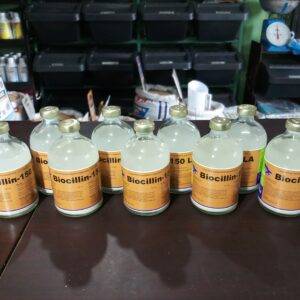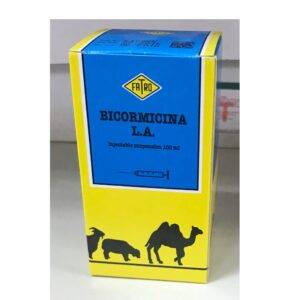Dexagold
Dexagold is a veterinary medication containing Dexamethasone, a potent corticosteroid used to treat inflammation, allergic reactions, and autoimmune disorders in animals, including horses, cattle, dogs, and cats. The specific formulation of Dexagold may vary depending on the manufacturer, but it typically provides fast-acting anti-inflammatory effects, making it useful in treating a wide range of conditions. buy Dexagold uk
Composition:
Dexamethasone: The active ingredient in Dexagold, which is a synthetic corticosteroid that mimics the effects of cortisol, a hormone produced by the adrenal glands. It is a highly potent anti-inflammatory and immunosuppressive agent.
Key Uses in Horses:
Dexagold is used to treat various conditions where inflammation, allergy, or overactive immune response is involved. Common uses include:
Musculoskeletal Disorders: Treats inflammation in joints, tendons, and muscles caused by conditions like arthritis, bursitis, and tendonitis.
Allergic Reactions: Controls acute allergic reactions to insect bites, food allergens, or environmental factors, reducing swelling, itching, and other allergy symptoms.
Respiratory Conditions: Used to manage inflammatory respiratory conditions like Chronic Obstructive Pulmonary Disease (COPD) or “heaves” in horses, as it reduces airway inflammation and helps improve breathing.
Autoimmune Diseases: Treats autoimmune disorders, where the immune system attacks the body’s own tissues, such as in autoimmune hemolytic anemia.
Skin Conditions: Used to manage inflammatory skin conditions such as allergic dermatitis.
Shock and Trauma: Administered in cases of acute trauma or shock to stabilize the horse and reduce the body’s inflammatory response.
Eye Conditions: In cases of severe inflammation in the eyes, such as uveitis, Dexagold can help reduce swelling and discomfort.
Dexagold Administration:
Form: Dexagold is generally available as an injectable solution, though it may also be available in oral forms, depending on the manufacturer.
Dosage: The dosage depends on the condition being treated, the horse’s weight, and the severity of the disease. A veterinarian will prescribe the appropriate dose.
Route of Administration: The injection is typically administered intramuscularly (IM), intravenously (IV), or subcutaneously (SC), depending on the specific condition and the veterinarian’s recommendation.
Mechanism of Action:
Dexamethasone, the active component in Dexagold, works by inhibiting the production of inflammatory chemicals (such as prostaglandins and leukotrienes) and reducing immune system activity. This results in a reduction of swelling, redness, heat, and pain associated with inflammation. It also suppresses the overactive immune response in autoimmune conditions.
Dexagold Duration of Action:
Dexagold acts quickly, with effects typically starting within a few hours of administration. Its duration of action can last for several hours or even days, depending on the dosage and the specific condition being treated.
Side Effects:
While Dexagold is effective for treating many conditions, corticosteroids can cause a range of side effects, especially with long-term or high-dose use:
Laminitis: One of the most serious potential side effects in horses. Prolonged or excessive use of corticosteroids like Dexamethasone can lead to laminitis, a painful and potentially debilitating inflammation of the hoof tissues.
Immunosuppression: Long-term use can suppress the immune system, making the horse more susceptible to infections.
Delayed Wound Healing: Corticosteroids can interfere with the normal healing process, leading to delayed recovery from injuries.
Increased Thirst and Urination: Some horses may experience polydipsia (increased thirst) and polyuria (increased urination).
Gastrointestinal Problems: Prolonged use may increase the risk of gastric ulcers or colic.
Behavioral Changes: Horses may exhibit irritability or hyperactivity while on corticosteroids.
Muscle Wasting: Extended corticosteroid use can result in muscle wasting or weakness.
Cushing’s Syndrome: Long-term use of corticosteroids may lead to iatrogenic Cushing’s disease, which is characterized by weight gain, muscle weakness, and a weakened immune system.
Precautions:
Short-Term Use: Dexagold should generally be used for short-term treatments to minimize the risk of side effects such as laminitis and gastrointestinal issues.
Veterinary Supervision: Always use Dexagold under the supervision of a veterinarian, who will determine the appropriate dosage and duration of treatment.
Pregnant Mares: Dexamethasone can induce premature labor or abortion, especially if administered late in pregnancy. Use with caution in pregnant mares and only under veterinary advice.
Pre-existing Conditions: Horses with pre-existing conditions like metabolic disorders (e.g., Equine Metabolic Syndrome), gastric ulcers, or infections may need alternative treatments or close monitoring while on corticosteroid therapy.
Contraindications:
Systemic Infections: Corticosteroids like Dexagold should not be used in horses with systemic bacterial, viral, or fungal infections unless they are on appropriate anti-infective treatment.
Hypersensitivity: Horses allergic to corticosteroids or any other ingredients in the formulation should not use this medication.
Monitoring:
Regular Veterinary Checkups: Horses on Dexagold, especially for extended periods, should have regular checkups to monitor for side effects such as laminitis or immune suppression.
Blood Work: Periodic blood tests may be recommended to monitor liver and kidney function, particularly if the horse is on long-term corticosteroid therapy. buy Dexagold uk
Withdrawal Period:
In competitive horses, it is important to observe the withdrawal period before participating in events, as Dexamethasone is often regulated in equine sports. The withdrawal period ensures that corticosteroids are fully cleared from the horse’s system before competition.
Differences Between Dexagold and Other Dexamethasone Products:
Dexagold vs. Dexafort, Dexacortyl, or Dexadreson: These products all contain Dexamethasone, but their formulations may differ. Dexagold may have a different concentration or release mechanism, providing a variation in the speed or duration of its effects.
Dexagold vs. Dexa G Rapid: Unlike Dexa G Rapid, which contains both Dexamethasone and Gentamicin (an antibiotic), Dexagold focuses solely on the anti-inflammatory and immunosuppressive properties of Dexamethasone without an antibiotic component.
Storage:
Dexagold should be stored at room temperature, away from direct sunlight, and protected from freezing. Always check the packaging for specific storage requirements.
Where to Buy Dexagold :
Dexagold can be obtained through veterinary clinics or authorized veterinary pharmacies. In most cases, a prescription from a veterinarian is required due to the controlled nature of corticosteroids. Be sure to purchase from a reputable source to ensure the quality and authenticity of the product.
Summary of Key Points:
Active Ingredient: Dexamethasone.
Uses: Treatment of inflammation, allergies, respiratory conditions, autoimmune diseases, skin conditions, and trauma.
Administration: Injectable (IM, IV, SC) for rapid and long-lasting effects.
Side Effects: Risk of laminitis, immunosuppression, delayed healing, gastrointestinal issues, muscle wasting, and behavioral changes.
Precautions: Short-term use recommended; caution with pregnant mares and pre-existing conditions.
Withdrawal Period: Must be observed for competition horses. buy Dexagold uk
Monitoring: Regular veterinary checkups and blood work may be required for long-term use.





Reviews
There are no reviews yet.